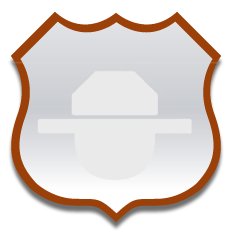BEAR LAKE STATE PARK
Bear Lake is nestled high in the Rocky Mountains on the Utah-Idaho border. Waterskiing, swimming, scuba diving and sailing are favorite activities. Fishing is for cutthroat, mackinaw and whitefish. In the winter snowmobilers and ice anglers are drawn to the area. Bear Lake is famous for its annual January cisco run. Three state-owned facilities provide boating, camping and picnicking.
Bear Lake Marina has an adjoining campground with 13 sites, each with a table, grill and firepit. The marina to this freshwater lake provides a sheltered harbor, 80-foot wide, 5-lane, concrete launching ramp, 377 boat slips, marina sanitary disposal station, group pavilion, modern rest rooms, hot showers and visitor center. Year round fishing is a popular activity. A concessionaire provides boat rentals, gasoline, fishing/boating supplies and fast-food grill.
Bear Lake Rendezvous Beach is on the south shore near Laketown on State Route 30. It extends for 1.25 miles and offers 220 campsites, modern rest rooms, hot showers and utility hookups. A wide, sandy beach provides excellent camping, picnicking and small watercraft activity. Rendezvous Beach is a popular area for groups and family reunions and the site of an annual Mountain Man Rendezvous. A local concessionaire provides small boat rentals.
Bear Lake Eastside is 10 miles north of Laketown. Activities include scuba diving, boating and fishing. There are six primitive campgrounds and two, 2-lane concrete boat launching ramps. Drinking water is available at the South Eden campground.
History
Bear Lake was formed some 28 thousand years ago by earthquake activity. Its unique aqua-blue color is the result of calcium carbonates suspended in the lake. At an elevation of 5,923 feet, Bear Lake is 20 miles long and 8 miles wide, 208' deep, covering 112 square miles.
Originally Bear Lake was called Black Bear Lake by Donald Mackenzie, explorer for the North West Fur Company who discovered it in 1819 while scouting for fur-bearing animals, largely beaver, to satisfy urban demand for hats. The name was later changed to Bear Lake.
The beach is named for the famous rendezvous of fur trappers and Indians held in the summers of 1827 and 1828. The gatherings were attended by a thousand or more Indians and mountain men including Jedediah Smith. There were so many campfires at the south end of the lake at these trading sessions that one observer called the area "a lighted city."
East Side-Cisco Beach-South Eden-North Eden-1st Point: These primitive areas are located on the east shore approximately ten miles north of Laketown. The terrain is rocky and the water depth drops off quickly to 208 feet.
Cisco Beach is famous for its midwinter fishing with dip nets for the little seven-inch Bonneville Cisco, a member of the white fish family. For a week to ten days in January, swarms of the little fish come close to the rocky shore to spawn. They are easily scooped up by hardy fishermen wading waist-deep in the icy water or through holes in the ice if the lake is frozen.
Cisco Beach is also known for this excellent inland water scuba diving opportunities. The rocky bottom and the steep drop off close to shore make this location a favorite of divers from the Tri-State area. Two diving areas have been marked and designated for this activity. Wooden walkways assist the diver in accessing the water with his needed equipment.
History
Bear Lake was formed some 28 thousand years ago by earthquake activity. Its unique aqua-blue color is the result of calcium carbonates suspended in the lake. At an elevation of 5,923 feet, Bear Lake is 20 miles long and 8 miles wide, 208' deep, covering 112 square miles.
Originally Bear Lake was called Black Bear Lake by Donald Mackenzie, explorer for the North West Fur Company who discovered it in 1819 while scouting for fur-bearing animals, largely beaver, to satisfy urban demand for hats. The name was later changed to Bear Lake.
The beach is named for the famous rendezvous of fur trappers and Indians held in the summers of 1827 and 1828. The gatherings were attended by a thousand or more Indians and mountain men including Jedediah Smith. There were so many campfires at the south end of the lake at these trading sessions that one observer called the area "a lighted city."
Day-UseFishingyes
Hiking Trailyes
Picnickingyes
Bike Trailsyes
BoatingLaunch Rampsyes
CampingPrimitiveyes
Full Hookup Sitesyes

